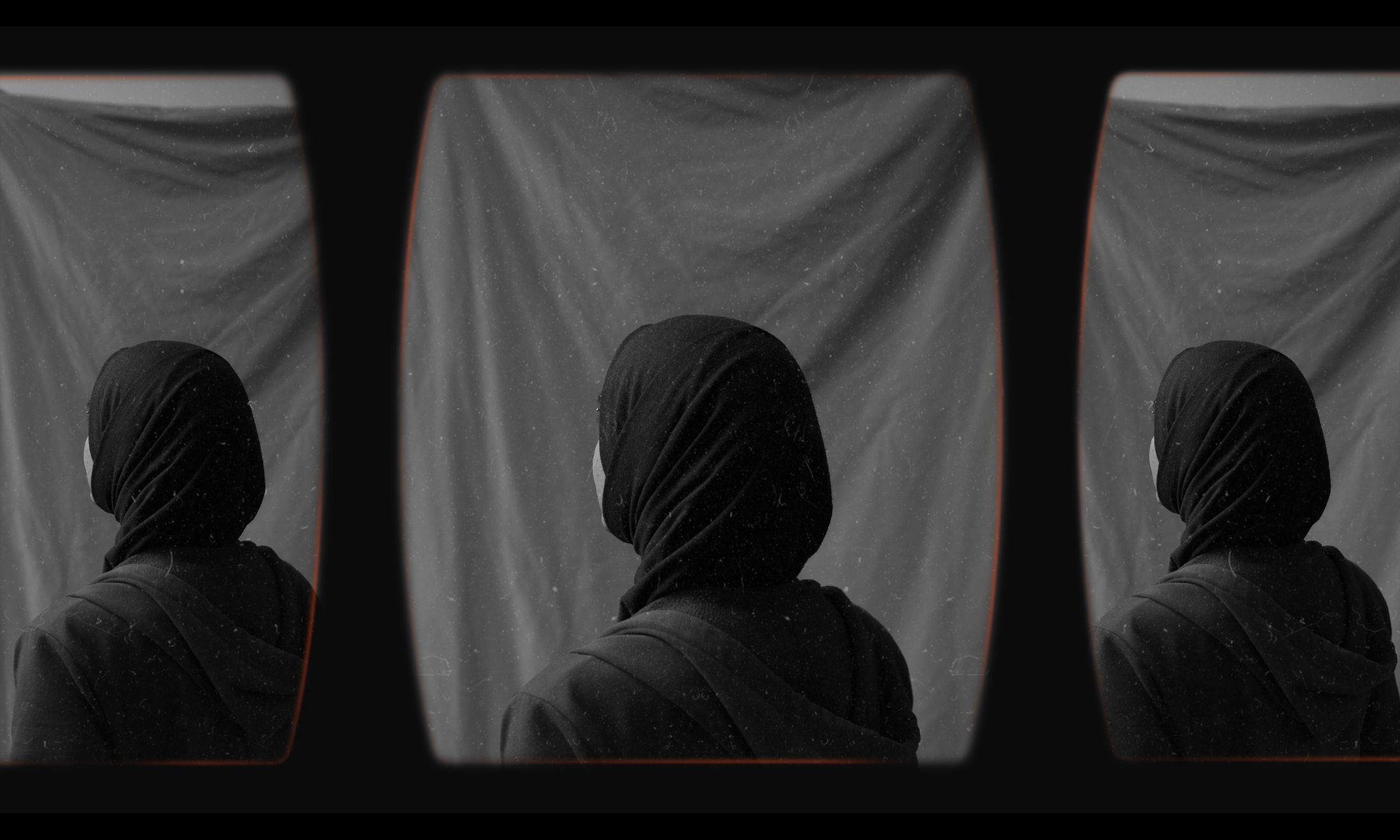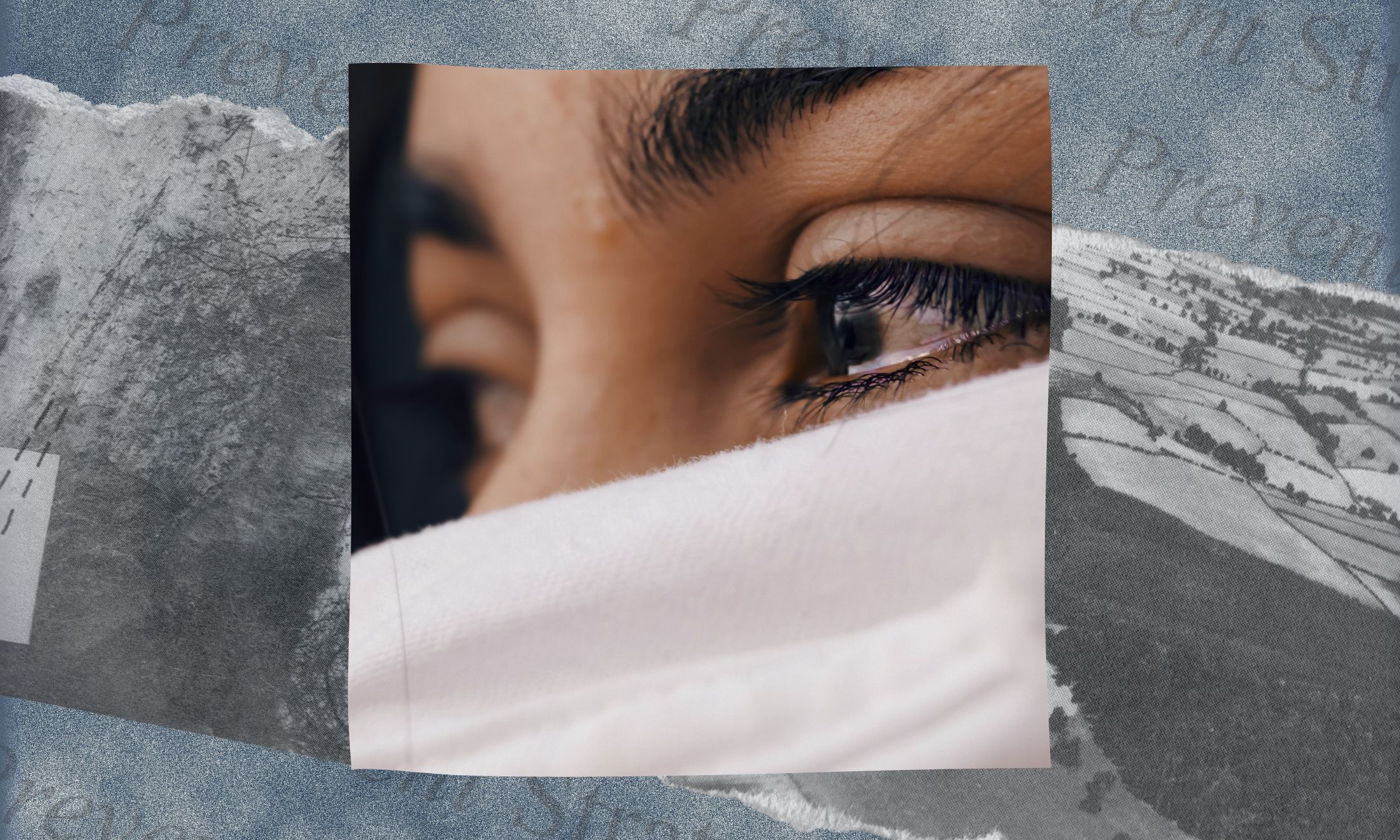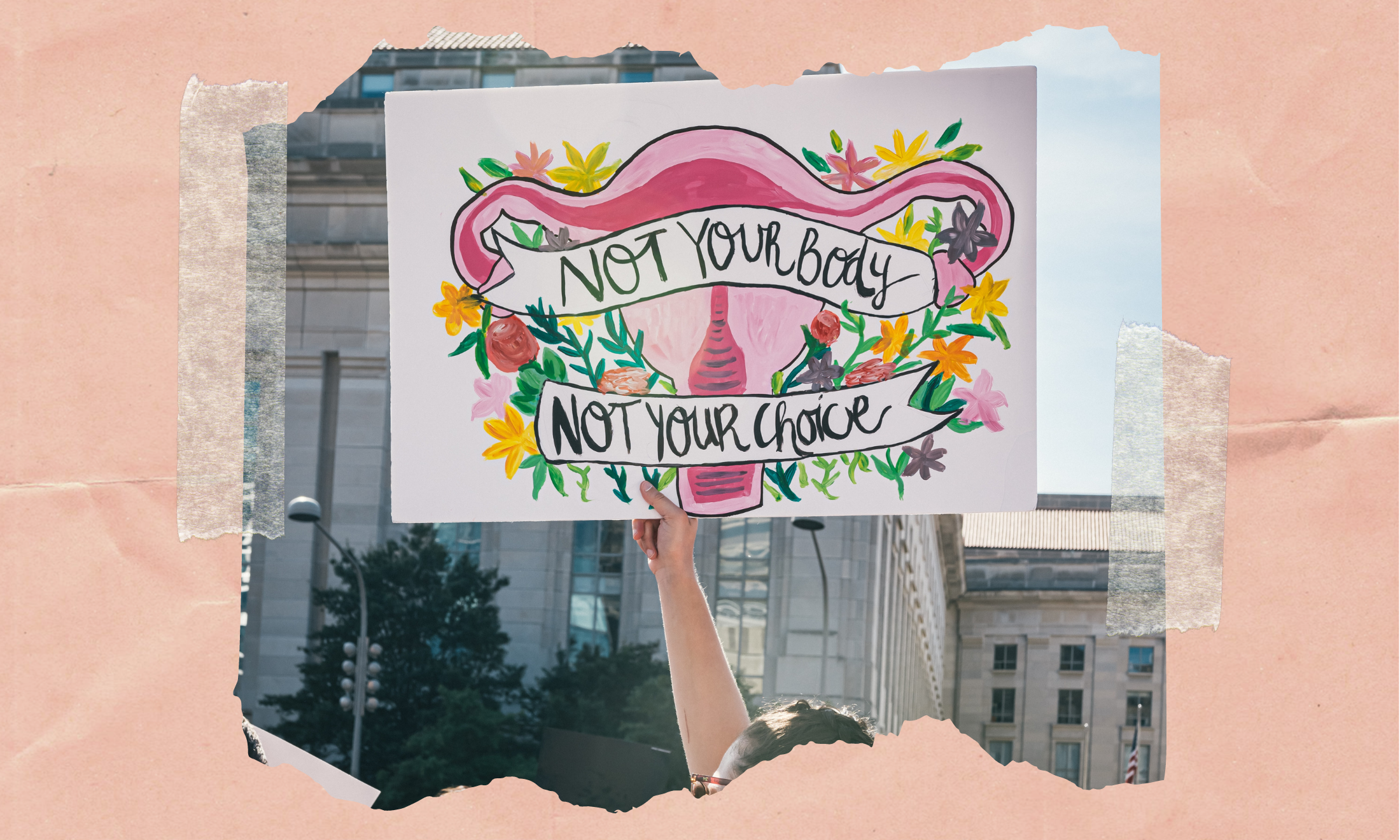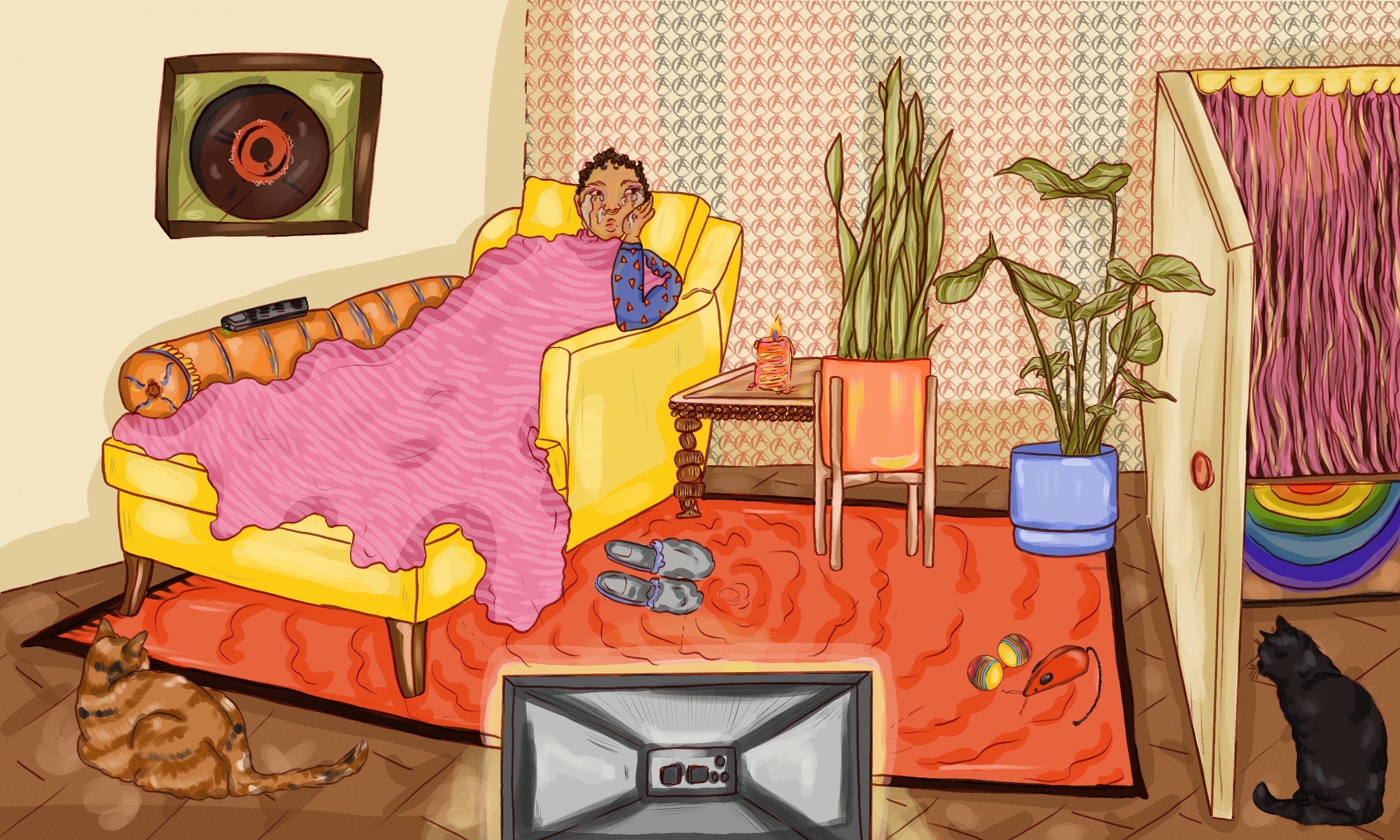The first time I owned my queerness was in front of an aunty doctor
In this extract from Hijab Butch Blues, author Lamya H. recalls a tense trip to the doctor’s office.
Lamya H.
30 Jan 2023

Lia Clay and the Queer|Art Community Portrait Project
The first time I own my queerness without apology, I don’t mean to; I stumble into it.
It happens at a doctor’s office. There are only a few certified doctors in the city that do the kind of medical examination I need for my immigration forms. The medical exam starts off easy, just like an annual physical: blood tests and vaccines and questions about my health.
And then suddenly becomes increasingly invasive and uncomfortable. Questions about mental health, drug use, STIs, asking the doctor to assess whether or not I’ll engage in “harmful behavior,” whether I’ll be a burden to society.
The entire thing seems specifically designed to be terrifying. That I even need a medical examination for my immigration forms is terrifying. That my ability to stay in this country is dependent on a special doctor who can sign and seal and swear to tell the truth is terrifying – as if the decades of student visas, years of employment authorizations that expire every twelve months, years of visa stamps that must be renewed when I leave the country – as if all of this hasn’t been terrifying enough.
It looms over me that a mistaken medical omission could jeopardize my ability to live here. I feel like immigration agents are looking over my shoulder when I’m printing the forms, gathering all my vaccination records, carefully picking out my clothes for the doctor’s appointment. I’m hyperaware of myself and my body, hyperaware that I need to choose my outfit so I come across as not just competent and organized, but also well adjusted, physically healthy, mentally sound.
“That my ability to stay in this country is dependent on a special doctor who can sign and seal and swear to tell the truth is terrifying”
So I fall back on what I know, the small rituals I practice before all of my school exams. Organize all my notes and printouts beforehand and check through them the morning of. Eat a big breakfast, pray two rakat nafl before leaving the house and depart early enough for an unhurried commute. I arrive at the office half an hour before my appointment. The bored receptionist leisurely checks me in and directs me to a seat in the foyer. I sit up straight in a hard-backed plastic chair clutching my files, next to a woman with a runny nose, and wait. In this too-small room with drab gray walls and the sharp smell of cleaning alcohol, what I really want to do is jog in place, do some jumping jacks, burn off some of this fear-induced energy that is coursing through me. Instead, I sit and wait.
It doesn’t help that I hate doctors. Their condescending manner, their brashness, and their tendency to touch and prod and ask personal questions. But the doctor who calls me into her office is browner than I’d expected from her anglicized name. The way she says my name – short first syllable and emphasis on the second – makes me pretty sure she’s Arab.
Instead of intimidating, she seems sweet and kind. She’s around my mother’s age and is tiny; I’m average height, but I tower over as I follow her into her office. It’s brightly lit via two giant windows and is remarkably cheery for a doctor’s office, full of plants and colorful geometric, unmistakably Islamic art. She asks me to sit down – in a normal chair, not on one of those awkward paper-lined tables. From this angle, I can see the edges of a homely floral dress peeking out underneath her white coat, her hair combed over a bald spot. She’s an aunty doctor.
“She reminds me of my neighbors, my friends’ moms, my mom. I’m beginning to feel like I’m at home”
I’m disarmed and feel instantly relieved. The aunty doctor is chatty, starts telling me about her daughter who’s the same age as me, interrupts her own stream of chatter to answer the phone and speaks into it in thick Egyptian Arabic dialect. I grew up around Egyptian aunties, going to Egyptian aunty doctors. The contours of her mannerisms are deeply familiar. She reminds me of my neighbors, my friends’ moms, my mom. I’m beginning to feel like I’m at home.
Of course, the defining feature of aunties is that they think they can run your life. When she hangs up the phone, she turns to me. Looks me up and down.
“You know, you shouldn’t wear black. It doesn’t go with your dark skin tone.”
“Okay?”
“And I can already tell by your coloring that you’re anemic. You should eat more meat.”
“I’m vegetarian.”
“That’s fine. But you need to throw some beef into your food now and then.”
“Okay.” I laugh, deciding to keep it light and pretend that she’s joking – the best that I can do in this particular power dynamic – but my armor is up again, more quickly than it had come down. I remind myself to breathe, to tamp down my frustration. Luckily, the aunty doctor starts filling out the form and asking me about vaccinations, my medical history, my parents’ medical history. She gets to the section about the tests she has to order, asks if I’m scared of drawing blood, if she needs to order a pregnancy test in case the tuberculosis skin test is inconclusive and a chest X-ray is required.
“There’s no need for that, I’m not pregnant,” I say.
“Are you sure? Sometimes people are more pregnant than they think.”
I laugh and respond without thinking. “I’m definitely not pregnant.”
It must be a special aunty skill to be able to root out the meaning of what’s left unsaid, because she puts her pen down, stops flipping through the forms, and looks up.
“How are you so sure?” she asks.
I hesitate. Even now, a decade after I came out, a decade spent building a queer life, I hesitate. I hadn’t anticipated this aunty doctor, hadn’t anticipated my careless answer, and I don’t have a game plan for navigating this immigration situation in which I legally have to tell the truth in response to this question that will out me.
“Lamya,” she says again. “I asked how you know you’re not pregnant?”
Hijab Butch Blues by Lamya H. is published by Icon Books on 2 February.
The contribution of our members is crucial. Their support enables us to be proudly independent, challenge the whitewashed media landscape and most importantly, platform the work of marginalised communities. To continue this mission, we need to grow gal-dem to 6,000 members – and we can only do this with your support.
As a member you will enjoy exclusive access to our gal-dem Discord channel and Culture Club, live chats with our editors, skill shares, discounts, events, newsletters and more! Support our community and become a member today from as little as £4.99 a month.









